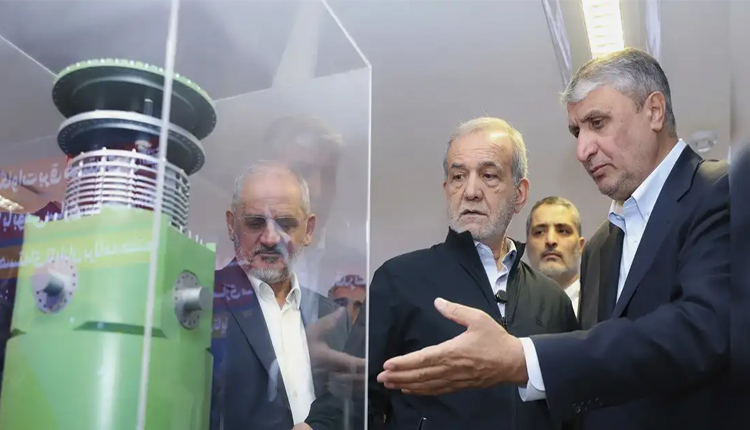New Delhi: Iran’s Foreign Minister Abbas Araghchi declared that the country will not abandon its nuclear enrichment program, calling it a symbol of national pride, despite USA and Israeli strikes that severely damaged key facilities.
In an exclusive interview with Fox News, Araghchi emphasised that halting uranium enrichment would betray the achievements of Iranian scientists. “We cannot give up enrichment because it is an achievement of our own scientists,” he said, framing the program as a matter of scientific and cultural significance. Iran’s stance remains firm despite international pressure, particularly from the USA and Israel, who view the program as a step toward nuclear weapons.
The 12-day conflict between Iran and Israel, starting June 13, 2025, culminated in the USA-led Operation Midnight Hammer on June 22. Seven B-2 Spirit stealth bombers dropped 14 GBU-57 Massive Ordnance Penetrator bombs, each weighing 30,000 pounds, targeting Iran’s Fordow, Natanz, and Isfahan nuclear sites. A United States submarine also launched over two dozen Tomahawk cruise missiles at Isfahan. Satellite imagery from Maxar Technologies shows six craters at Fordow and extensive debris at Isfahan, confirming significant damage.
Iran’s Atomic Energy Organisation admitted the strikes caused “severe damage” but claimed no radiation leaks occurred, as critical materials and personnel were evacuated beforehand. Mehdi Mohammadi, an adviser to Iran’s parliament chairman, stated on X that Fordow was prepared for the attack, with no “irreversible damage” sustained. Satellite images from June 19 showed 16 cargo trucks at Fordow’s tunnel entrances, suggesting Iran moved its 408-kilogram stockpile of 60% enriched uranium—enough for nine nuclear bombs if enriched to 90%—to an undisclosed location.
The USA and Israel claim Iran’s enrichment levels indicate a pursuit of nuclear weapons, a charge Tehran denies, insisting its program is for civilian energy and medical research. The International Atomic Energy Agency (IAEA) reported in May 2025 that Iran’s uranium stockpile, enriched to 60%, grew by nearly 50% since February, raising concerns about non-compliance with the 2015 Joint Comprehensive Plan of Action (JCPOA). No IAEA inspections have occurred since Israel’s initial strikes, complicating assessments.
USA President Donald Trump called the strikes a “spectacular military success,” claiming Iran’s nuclear facilities were “totally obliterated.” However, a leaked USA Defence Intelligence Agency report, disputed by the White House, suggests the attacks set Iran’s program back by only six months, as much of the uranium stockpile survived. Experts like David Albright from the Institute for Science and International Security note that Iran likely retains uninstalled centrifuges and could enrich uranium to weapons-grade levels at a covert facility.
Araghchi condemned the strikes as a “blatant violation” of international law, accusing the USA and Israel of undermining diplomacy. Iran has called for an emergency UN Security Council meeting and is seeking support from China and Russia to stall potential UN sanctions ahead of nuclear talks with European powers. The ceasefire on June 24, 2025, has paused hostilities, but tensions persist as Iran vows to rebuild its nuclear capabilities.
As Iran doubles down on its nuclear ambitions, the international community faces a dilemma: escalate military or diplomatic pressure, or seek a new agreement to curb Iran’s program. The outcome will shape West Asia’s stability and global non-proliferation efforts.



Comments are closed.